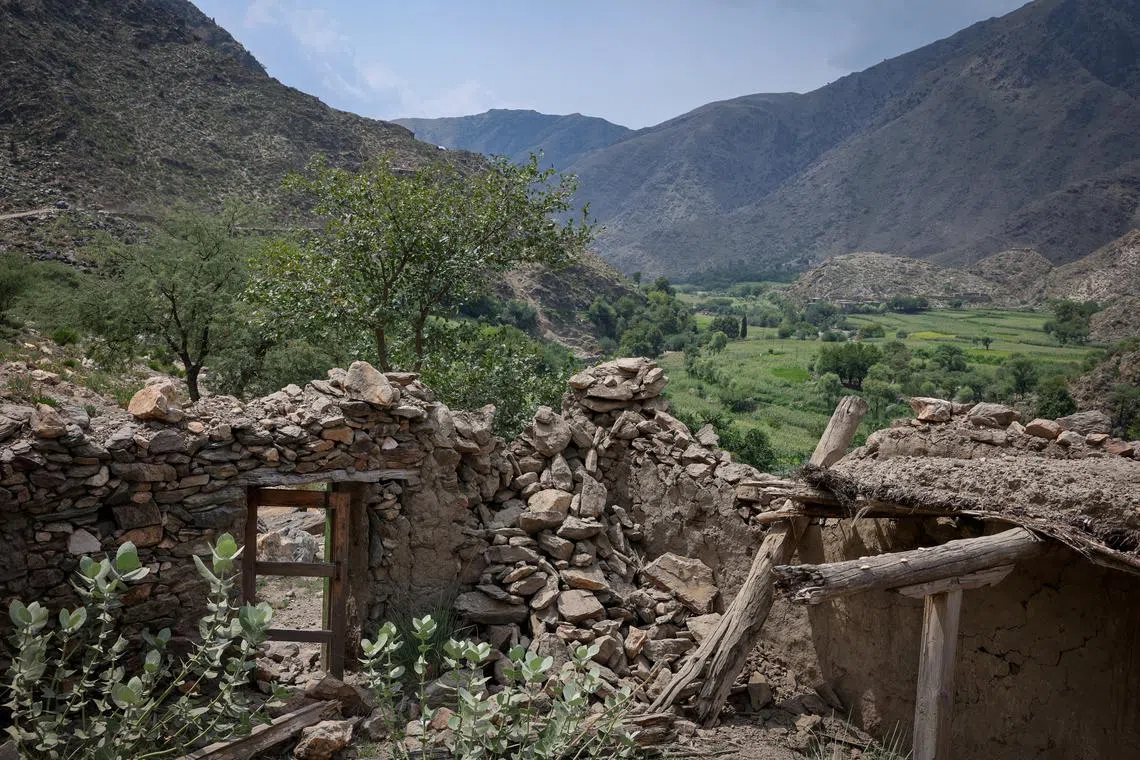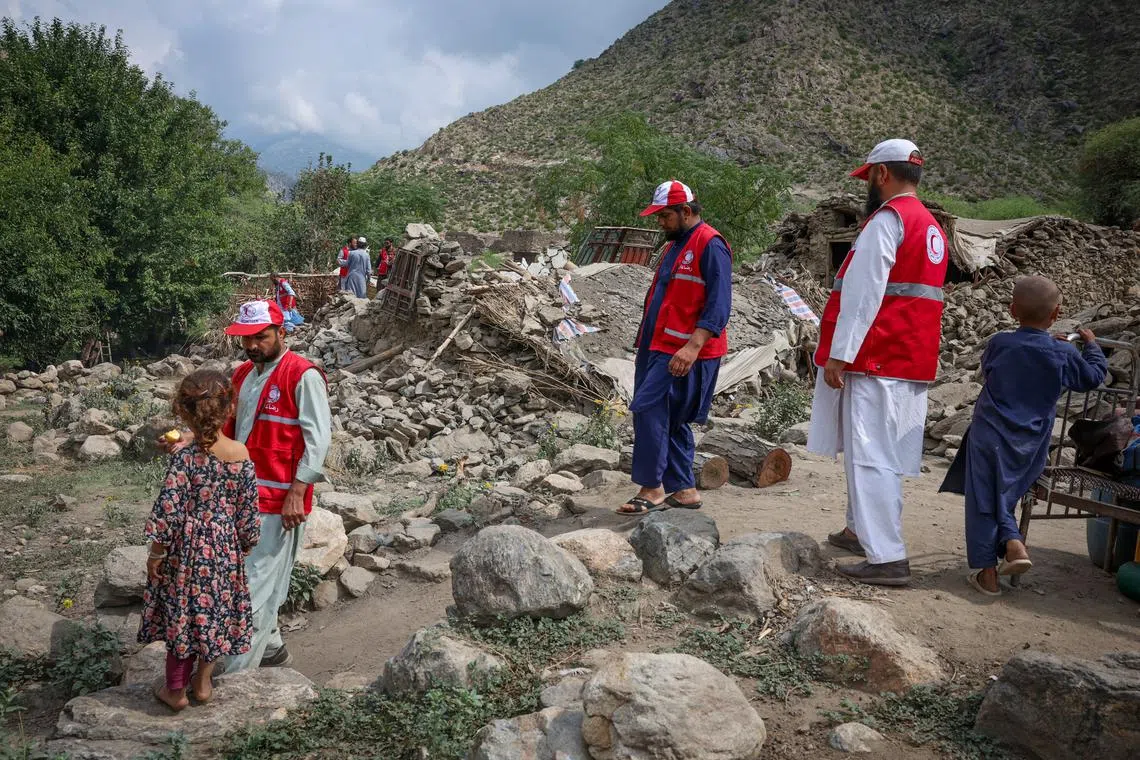Afghanistan airdrops commandos to rescue quake survivors, UN warns food may run out
Sign up now: Get ST's newsletters delivered to your inbox

Resources for rescue and relief work are tight in Afghanistan, a nation of 42 million people hit by war, poverty and shrinking aid.
PHOTO: REUTERS
Follow topic:
KABUL/MAZAR DARA, Afghanistan – Afghanistan airdropped commandos on Sept 3 to pull survivors from the rubble in areas ravaged by earthquakes that have killed more than 1,400
Dozens of commandoes were airdropped at sites where helicopters could not land, to help carry the injured to safer ground, in what aid groups said was a race against time to rescue those still trapped under rubble.
Time was also running out for those who survived the two devastating quakes in the remote eastern region of the impoverished country, the UN World Food Programme (WFP) warned on Sept 3.
Mr John Aylieff, the head of WFP in Afghanistan, told Reuters that the agency had enough funding and stocks only for the next four weeks.
“Four weeks is just not enough, even to meet the basic, essential needs of the population struck by the earthquake, let alone put the victims on a path back to rebuilding their lives,” he said.
WFP funding for Afghanistan in 2025 stood just under US$300 million (S$386.5 million), according to UN financial data, down from US$1.7 billion in 2022, the first full year the country was ruled by the Taliban.
Resources for rescue and relief work are tight in the nation of 42 million people hit by war, poverty and shrinking aid. It has received limited global help after the disaster.
The first quake, of 6-magnitude, one of Afghanistan’s deadliest in recent years, unleashed widespread damage and destruction when it struck the provinces of Kunar and Nangarhar around midnight on Aug 31 at a shallow depth of 10km.
A second quake, of 5.5-magnitude, on the evening of Sept 2 caused panic and interrupted rescue efforts, as it sent rocks sliding down mountains and cut off roads to villages in remote areas.
The toll was 1,457 deaths, 3,394 injuries and more than 6,700 destroyed homes, the Taliban administration said. The UN has said the toll could rise, with people still trapped under rubble.
The authorities have set up a camp to coordinate supplies and emergency aid, while two centres oversaw transfer of the injured, burial of the dead and the rescue of survivors, Mr Ehsanullah Ehsan, the head of disaster management in Kunar, said in a text message.
Mr Aylieff said: “What we really need is air support, helicopters. Tragically, WFP had a helicopter... until a few months ago, when funding cuts put an end to that.”
Afghanistan has been badly hit by US President Donald Trump’s funding cuts to foreign aid, while donor frustration over the Taliban’s restrictive policies towards women and curbs on aid workers have worsened its isolation.

Red Crescent volunteers walking next to damaged houses as they reach Lulam village to help the victims of the deadly 6-magnitude quake, in Afghanistan, on Sept 3.
PHOTO: REUTERS
Entire households wiped out
In some villages in Kunar province, entire households were wiped out. Survivors sifted through rubble searching for families, carried bodies on woven stretchers and dug graves with pickaxes.
In Lulam village, one of the hardest-hit, Ms Darbar, a 63-year-old woman who goes by one name, said she and her family had been waiting for aid for three days since the quake destroyed their house.
“No one even hears our voices,” she said, perched on a traditional wood-and-rope bed, adding that she had been injured in the chest. “Now we are just sitting with hope in God. We have no house, nothing to eat.”
On the nearby mountain road, trucks carrying sacks of flour or men with shovels could be seen on their way to villages even worse hit.
Ms Ruhila Mateen from Aseel, a humanitarian tech platform that has teams on the ground, said conditions were worsening by the hour for survivors, with women and children especially vulnerable.
Flimsy, poorly built homes made of dry masonry, stone and timber gave little protection from the quakes, in ground left unstable by days of heavy rain, said the UN Office for the Coordination of Humanitarian Affairs.
The agency, which is pulling together the global disaster effort, called for emergency shelter, food assistance and sanitation facilities, along with drinking water, critical medical supplies and other items.
An official of the international aid group Doctors without Borders, which distributed trauma kits at two hospitals in the affected areas, also called for more humanitarian assistance.
Afghanistan is prone to deadly quakes, particularly in the Hindu Kush mountain range, where the Indian and Eurasian tectonic plates meet. REUTERS

